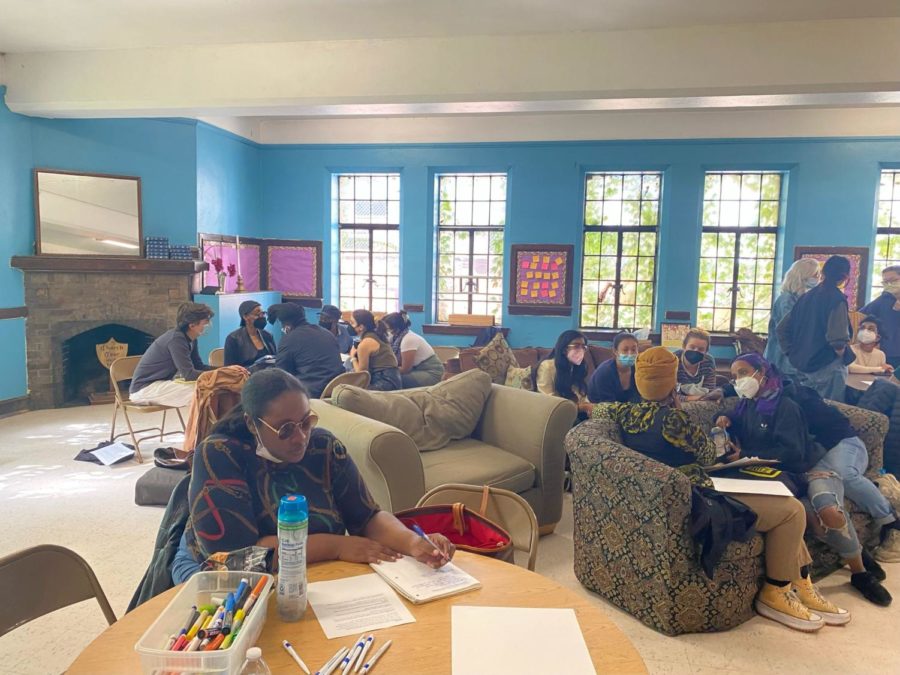In the early 1980s, Patricia Tatum, a nurse at the University of Chicago hospital system, decided to look for housing in the Hyde Park and Woodlawn neighborhoods. The University provided her with a list of available housing options nearby, but when Tatum, a Black woman, went to look at these properties, not a single property manager would show her an apartment for rent.
“Everything I looked at or went to visit, all of a sudden they were rented out or they didn’t have any vacancies anymore,” Tatum said.
Tatum recalled that a white coworker later asked to see the list of addresses, believing that many of the buildings had available units.
“When he came back, he told me that almost every one of them that he went to, they showed him a unit when they never showed me anything,” Tatum said. She says her unsuccessful search for housing was a common experience among Black employees. “I still hear stories like that about employees of the University.”
Forty years after this incident, and following a decades-long career with the University, Tatum is now a Woodlawn homeowner and a supporter of the UChicago reparations campaign. This coalition of community-organizing groups demands reparations from the University for its history of racism toward Black employees and Southsiders.
“The call for reparations isn’t something that can be downplayed,” Tatum said in her conversation with The Maroon. “It’s something that needs to be addressed and needs to be addressed now.”
The reparations campaign brings together student and community groups, including UChicago Against Displacement (UCAD) and the Obama Community Benefits Agreement (CBA) Coalition, which directed Tatum to the reparations group.
At an October 1 community meeting at the First Presbyterian Church of Chicago on Woodlawn’s 64th Street, the campaign unveiled a new set of demands for the University, including a $1 billion affordable housing grant and a reified agreement not to expand campus south of East 61st Street. On October 25, the campaign will hold an on-campus “educational town hall” at the Center for the Study of Race, Politics and Culture to present the new aims to University faculty and students.
“Students have a part to play in all of this, since our presence here necessarily furthers this gentrification and therefore students have a responsibility to stop the institution’s continued expansion,” a student organizer with UCAD told The Maroon in an emailed statement.
Organizers of the reparations campaign cite more than a century of racist University history as the impetus behind its calls for affordable housing and institutional transparency. At their meeting on October 1, the campaign said that this history dates back to the founding of the original University of Chicago in 1856, on land donated by Illinois politician Stephen A. Douglas, who held a significant ownership stake in a Mississippi plantation.
Although the present University administration has officially challenged accusations of a connection to the “old” University, academics and activists have insisted on a lasting financial connection between the institutions.
At the October meeting and in follow-up communications with The Maroon, organizers with the campaign explained that their demands seek redress for the University’s historical support of segregated housing covenants and its sponsorship of urban renewal policies that have displaced South Side residents.
“There’s no reason for [the University] to ignore demands,” Tatum said. “We can historically give an account of how the University was built on the back of slaves and on the backs of Black people.”
Some controversy at the October 1 meeting emerged over the campaign’s use of the term “reparations,” which multiple members of the Woodlawn community believed signaled a project with a nationwide scope, not one focused on the University alone. Among those who vocally objected to the term at the meeting was Andre Smith, a Woodlawn activist who has run multiple times for the position of 20th Ward alderman.
Reparations campaign organizers told The Maroon that they did not intend to adjust the name of their campaign. They added that Smith “disrupted” the meeting because of the reparations campaign’s lasting partnership with sitting 20th Ward Alderman Jeanette Taylor, Smith’s political adversary.
Linda Jennings, a South Shore resident present at the meeting and an activist with the Obama Center CBA, defended graduate student organizers’ use of the term “reparations” in an interview with The Maroon.
“I think the students should be aggressive and use ‘reparations.’ Because that’s what you’re asking the University for. They […] knowingly did damage to a community, so knowingly you need to say what it is—reparations—and not be afraid of the word. We can’t be afraid,” Jennings said. “I think the grad students are taking on a gargantuan challenge. And I believe that they’re built for the fight.”
Tatum said she was glad to see that students were working arm in arm with community members and involving local residents in the conversation.
“For too long, people who live outside of Woodlawn have been the voice of Woodlawn,” Tatum said. “This is really the point at which we really need to tie into the voice of the community.”
The town hall open to students will be held Tuesday, October 25, at 5733 South University Avenue, home to the Center for the Study of Race, Politics, and Culture.









